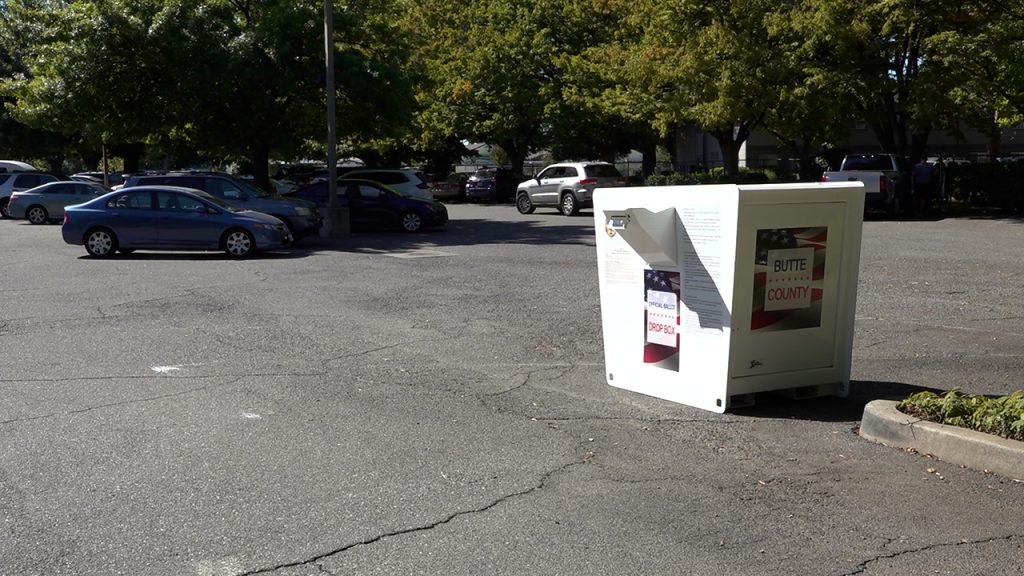California’s Prop 50: A Controversial Redistricting Measure with National Implications
California voters are currently deciding on a significant ballot measure that could reshape the state’s political landscape and potentially impact national politics. Proposition 50, which began its voting period this week, proposes a temporary transfer of redistricting power from the independent California Citizens Redistricting Commission to the state legislature until 2030. This shift could substantially alter California’s congressional map, potentially adding up to five Democratic-held seats in Congress by the 2026 midterms. The measure, supported by Governor Gavin Newsom and California Democrats, is positioned as a direct response to similar Republican-led redistricting efforts in Texas. Recent polling suggests Prop 50 is likely to pass, though its implications extend far beyond California’s borders, raising questions about the future of partisan redistricting nationwide and potential political consequences in upcoming election cycles.
While supporters view Prop 50 as a necessary countermeasure to maintain political balance, critics, including some Democrats like UC Davis Professor Jim Adams, express concern about potential long-term consequences. “I think that even if Prop 50 does help the Democrats win a handful of additional seats in California, by winning the battle in California, the Democrats may make themselves lose the war nationally,” Adams cautioned. This sentiment reflects broader worries that the measure, though potentially beneficial for Democrats in the immediate future, might trigger political backlash both within California and nationally, particularly affecting the 2026 midterms and the 2028 presidential election. The strategic question looms large: Is this an effective way for Democrats to “fight back,” as Adams puts it, or might it ultimately prove counterproductive to their larger political objectives? The debate centers on whether responding to gerrymandering with more gerrymandering serves democracy or further erodes it.
The potential impact of Prop 50 is perhaps most visible in Northern California, where currently Republican-held districts could shift to Democratic control. Chico, situated in District 1 represented by Republican Doug LaMalfa, exemplifies this potential transformation. The proposed map would likely flip this district by incorporating more Democratic-leaning voters from areas closer to the Bay Area. The political division is evident on the streets of downtown Chico, where voters express sharply contrasting views on the proposition. Supporters like Don Tarman and Martin Bettencourt see it as a justifiable response to national political developments, particularly related to former President Trump’s influence. “We agree with Gavin Newsom that Trump is trying to sway the election for the House,” Tarman noted, while Bettencourt acknowledged, “I don’t like redistricting… but I think we’re in kind of a different time,” suggesting that exceptional circumstances call for exceptional measures.
Opposition to Prop 50 comes from those who view it as an inappropriate response that perpetuates rather than solves the problem of partisan gerrymandering. Jim Henderson expressed concern about the potential domino effect: “When say they do it in Iowa, then do we have to have Oregon do the same thing and the next thing you know everything is being gerrymandered?” His view reflects the worry that responsive gerrymandering creates a race to the bottom that ultimately harms democratic principles nationwide. Similarly, Eleanor Engelbrecht emphasized the need for stability in a politically divided time: “Right now, we’re going through a lot of change already, and I don’t think this is the time we need to be dusting and cleaning really. I think that we really need to let things settle.” These perspectives highlight the tension between tactical political advantage and broader democratic values, raising questions about whether short-term partisan gains justify potentially undermining faith in electoral systems.
The debate over Prop 50 reflects a broader national struggle over redistricting and representation that extends far beyond California’s borders. The measure represents a significant escalation in the interstate redistricting battles that have intensified in recent years. While traditionally viewed as a state-level issue, redistricting has increasingly become a critical component of national party strategies to secure majorities in the House of Representatives. California’s entry into this contentious arena with Prop 50 signals a new phase in which large blue states may actively counter the redistricting efforts of red states, potentially leading to further polarization and diminished trust in electoral systems. The proposition effectively places California voters in the position of deciding whether to endorse a tit-for-tat approach to redistricting or maintain commitment to independent commission-based processes that aim to minimize partisan influence, even if that means potential disadvantages in national political representation.
The aftermath of the Prop 50 vote promises continued controversy regardless of the outcome. If passed, legal challenges are virtually guaranteed, with California Republicans already filing lawsuits against the measure. These legal battles will likely center on questions of constitutionality, fairness, and the proper role of state legislatures in drawing congressional district lines. Beyond the courtroom, the political ramifications could be substantial, potentially fueling voter disillusionment or energizing partisan bases depending on how the narrative develops. The proposition thus represents not just a California policy decision but a significant moment in the evolving national conversation about representation, fairness, and the mechanisms that translate votes into governance. As voting continues, Californians are essentially weighing whether fighting fire with fire is a necessary evil in current political circumstances or whether it further damages the democratic principles that redistricting is meant to serve.















